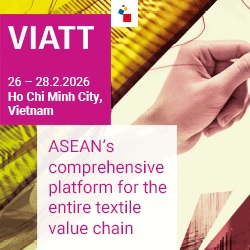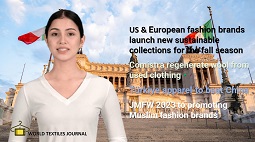In a bid to bolster the circular economy within its textile sector, Bangladesh faces a pressing need for financial backing, technological advancements, and supportive policies. Industry experts emphasize that adopting a circular economy is paramount for the nation's textile products to maintain a competitive edge in the global market, especially in Western countries.
A circular economy is an innovative approach where materials are perpetually recycled, eliminating waste and promoting environmental sustainability. The textile sector, a significant contributor to carbon emissions, is urged to embrace practices such as maintenance, refurbishment, reusing, remanufacturing, recycling, and composting.
Asif Ibrahim, a director of the Bangladesh Garment Manufacturers and Exporters Association (BGMEA), underscored the challenges faced by the Ready-Made Garment (RMG) sector, including tight profit margins and the global economic slowdown. The question arises: How can entrepreneurs secure the necessary investments to propel the development of a circular economy?
Engaging brands in this transformative process is essential, recognizing that sustainable practices may incur additional costs. Policymakers are called upon to incentivize businesses to utilize eco-friendly raw materials. Edwin Koekkoek, the team leader for Green Inclusive Development at the delegation of the European Union to Bangladesh, stressed that European nations prioritize the circular economy as part of their commitment to reducing carbon emissions and establishing sustainable supply chains.
Vidiya Amrit Khan, a director of the BGMEA, emphasized the need for government guidelines to guide the industry's transition. Defining stakeholders' responsibilities in waste management is crucial, and financial institutions are urged to provide low-rate financing. Incentives for sustainable practices should be established, addressing the challenges posed by the informal waste management sector.
Patrick Schröder, senior research fellow of Chatham House, proposed specific industrial guidelines for post-industrial waste in the RMG sector, covering waste reduction, sorting, collection, and the use of alternative materials. He highlighted the importance of improving the tax environment, providing investment incentives, adjusting tariffs, promoting investment through loans, raising awareness, and enforcing waste management regulations.
Masrur Reaz, chairman and CEO of Policy Exchange Bangladesh, emphasized that embracing a circular economy could accelerate RMG sector exports. Western nations and brands, committed to reducing carbon emissions, are likely to favor products from environmentally responsible factories. Zaki Uz Zaman, country representative of UNIDO, and other experts stressed the urgency of prioritizing this issue, aligning with global commitments to environmental, social, and corporate governance.
In conclusion, as Bangladesh charts its course towards a circular economy in the textile sector, collaboration between industry stakeholders, policymakers, and financial institutions is imperative. By overcoming barriers through research, development, and learning from global best practices, Bangladesh can position itself as a leader in sustainable textile production.





